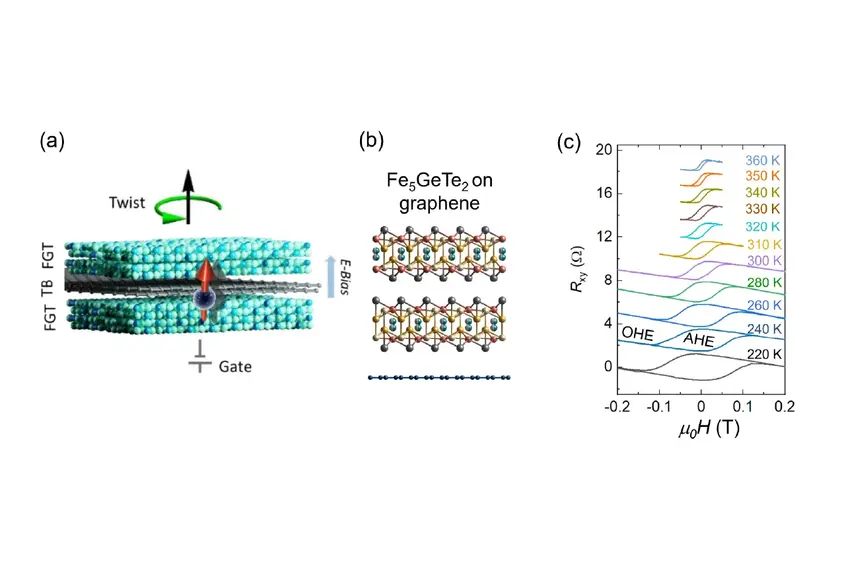Enabling large tunnel magnetoresistance at room temperature in scalable epitaxial van der Waals magnet heterostructures (MagicTune)
01/03/2024 - 28/02/2027

The emergence of atomically thin two-dimensional (2D) materials and their van der Waals (vdW) heterostructures has sparked new scientific interest, offering unprecedented electronic properties for next-generation technologies. 2D magnets—the latest addition to the 2D family—have unique characteristics that make them ideal for vdW heterostructure designs. 2D magnets have the potential to revolutionize magnetic sensors and spintronic technologies, particularly tunnel magnetoresistance (TMR) devices. These devices offer ultra-high sensitivity in magnetic field detection at room temperature, making them invaluable for applications such as magnetic sensors, data storage, memory, and computing. However, reliable and tunable TMR devices pose challenges with conventional materials. Recent advancements have achieved large TMR values using 2D magnets, however most of the reports are limited to cryogenic temperatures and studies are limited to exfoliated flakes. Scalable growth of 2D magnets and the fabrication of magnetic tunnel junctions (MTJs) with multiple layers separated by a tunnel barrier remain challenging and coherent spin-polarized electron tunneling across vdW tunnel barriers on TMR effects is also unexplored.
The MagicTune project aims to address these challenges by controlling spin-polarized tunneling in 2D MTJs through twist angle and gate voltage control, achieving large and tunable TMR at room temperature. Scalable growth processes for high-quality vdW magnetic heterostructures with high Curie temperatures (TC) and perpendicular magnetic anisotropy (PMA) will be developed. The project will maximize tunnel spin polarization in MTJs by exploiting momentum-conserving electron tunneling across vdW barriers. Robust room temperature TMR device operation with TMR ratios above 100% will be demonstrated using epitaxial vdW magnetic heterostructures.
MagicTune will leverage expertise in epitaxial growth and characterization, synthesis of epitaxial graphene templates, tunnel magnetoresistance devices, twistronics, quantum and spin transport measurements, and nanofabrication of all-2D nanodevices. Success in MagicTune will drive breakthroughs in TMR device functionalities and enable high-performance, compact, and energy-efficient technologies using 2D heterostructures. This project holds great promise at the forefront of multidisciplinary nanoscience and nanotechnology.
The project is a EU Flag-Era project associated with the EU Graphene Flagship. PDI’s grant is funded by the Deutsche Forschungsgemeinschaft (DFG) under Grant No. 533948427. PDI's partner institutes are the Chalmers University of Technology and Universite Paris Saclay/Center for Nanosciences and Nanotechnologies.